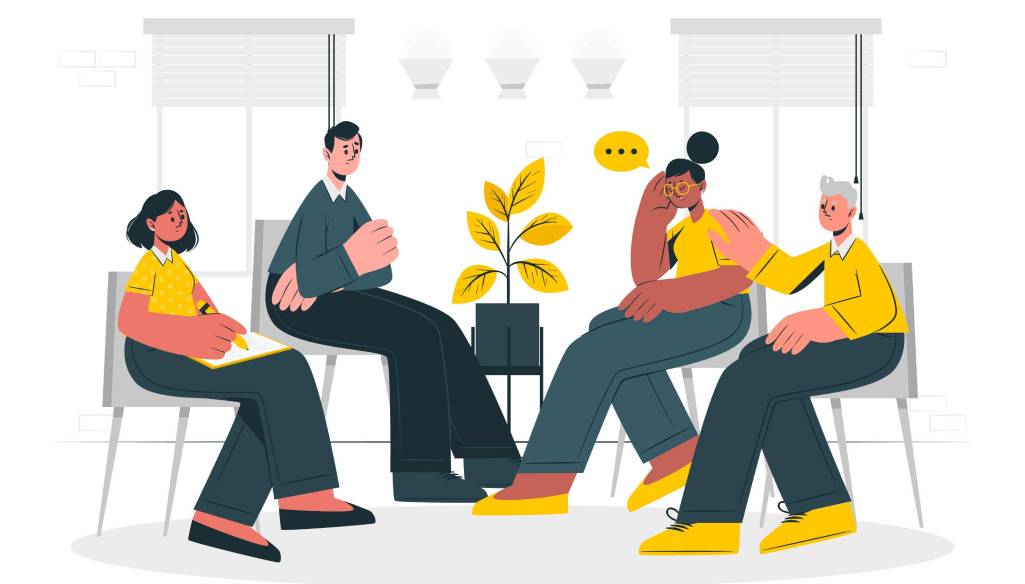For human beings, family is the most important group for their individual development, emotional interaction and maintenance of their self-esteem. Family members form a group which is usually bound together by intense and long-lasting experiences, develops mutual support and requires fulfilment of everyone’s needs and expectations.
What is family therapy?
Family therapy is a form of treatment that is designed to address specific issues affecting the health and functioning of a family. Family counselling in Chennai can help a families through a difficult period, a major transition, or mental or behavioural health problems in family members.
The term “family” does not necessarily mean blood relatives. In this context, “family” is anyone who “plays a long-term supportive role in one’s life, which may not mean blood relations or family members in the same household”.
Types of family therapy
Bowenian
This form of family therapy is best suited for situations in which individuals cannot or do not want to involve other family members in the treatment.
Bowenian therapy is built on two core concepts: triangulation (the natural tendency to vent or distress by talking to a third party) and differentiation (learning to become less emotionally reactive in family relationships).
Structural
Structural therapy focuses on adjusting and strengthening the family system to ensure that the parents are in control and that both children and adults set appropriate boundaries.
In this form of therapy, the therapist “joins” the family in order to observe, learn, and enhance their ability to help the family strengthen their relationships.
Systemic
The Systemic model refers to the type of therapy that focuses on the unconscious communications and meanings behind family members’ behaviors.
The therapist in this form of treatment is neutral and distant, allowing the family members to dive deeper into their issues and problems as a family.
Strategic
This form of therapy is more brief and direct than the others, in which the therapist assigns homework to the family. This homework is intended to change the way family members interact by assessing and adjusting the way the family communicates and makes decisions.
The therapist takes the position of power in this type of therapy, which allows other family members who may not usually hold as much power to communicate more effectively.
Techniques in family therapy
The techniques utilized in family therapy typically depend on factors such as the theoretical orientation of the therapist and the specific needs of the family.
Psychoeducation
Family counselling services can be used for helping family members better understand mental health conditions. This approach is useful for understanding more about medications, treatment options, and self-help approaches. The main goal is to help family members function as a support system.
Support in family
This type of approach focuses on creating a safe environment where family members can openly share what they are feeling and get support from their family.
Understanding Family systems
This approach focuses on helping family members utilize the strengths of their relationships to overcome mental health problems.
Family as a functional unit
A family therapist often offers a short-term treatment which can be utilized for those experiencing problems with risky behavior, violence, or substance use. It helps teens and families look for solutions while building trust and respect for each individual.
Narratives in family
In this approach the family therapist encourages family members to each tell their own story to understand how those experiences shape who they are and how they relate to others. This helps the family members view problems more objectively.
Behavioral approach
The family therapist may focus on skills training and psycho-education to help family members address specific problems.
For example, a therapist may use role-playing to help family members resolve communication problems.
Psychodynamic approach
Approaches in this method include assessing how each family member interprets and responds to the problems they are facing.
The family therapist works with the family to develop new emotional insights and explore new ways of responding more effectively.
Structural approach
A family therapist would help family members by helping them create new boundaries and establish routines that improve how the family functions.
Effectiveness of family therapy
Family counselling services can be effective for a range of purposes.
More specifically, family therapy can improve family relationships through
Family therapy helps by providing all family members with the tools they need to facilitate healing.
We at Center for Mental Health are always here to help you and your loved ones.

